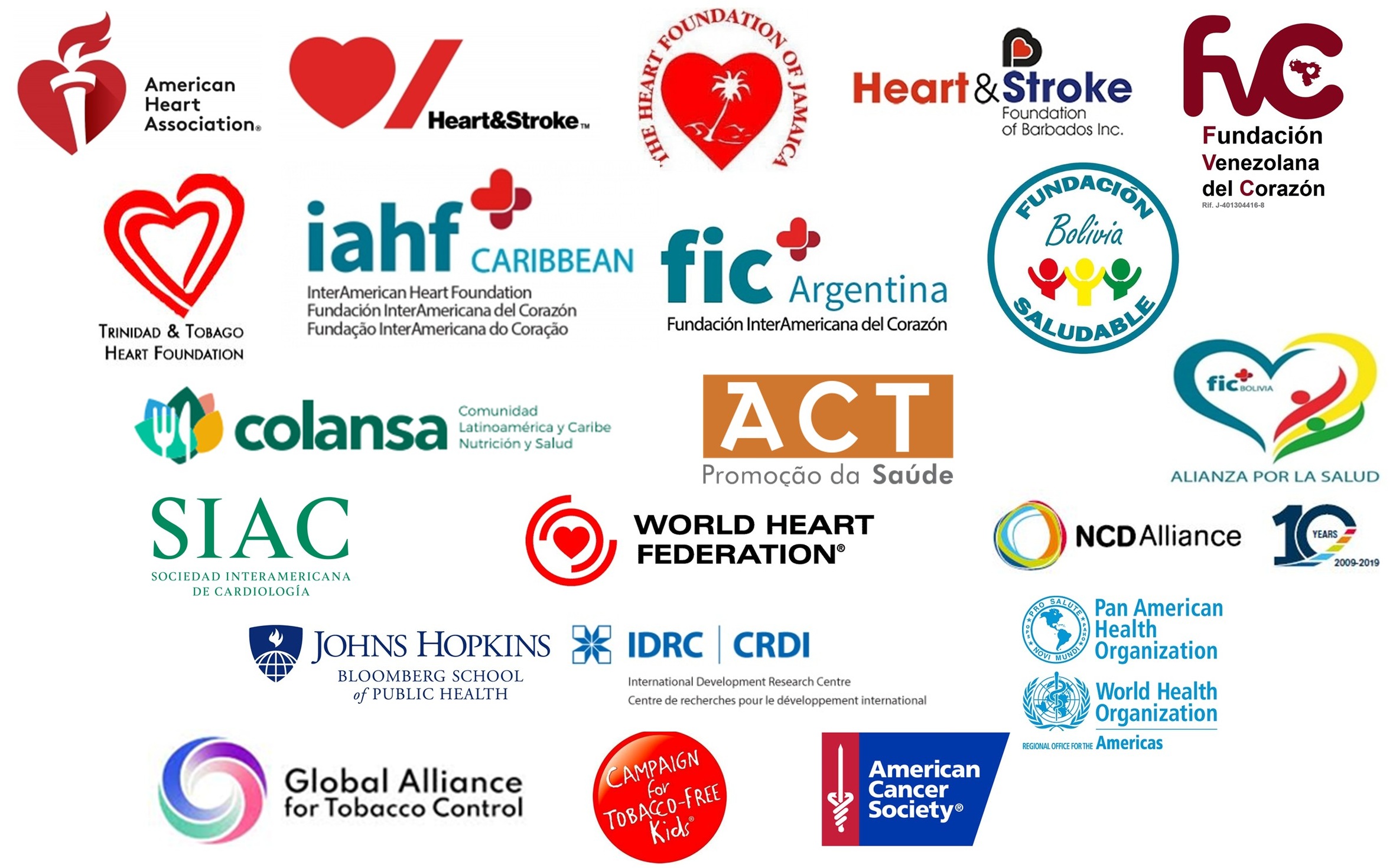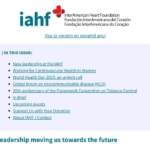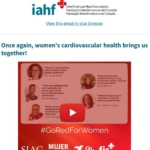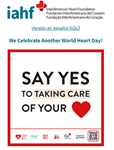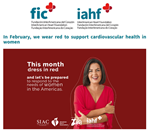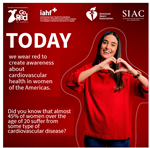1
/
15
Día Mundial del Corazón 2024: UTILIZA ❤️ PARA ACTUAR
Juventud sana del Caribe Día Mundial de la Salud 2024
FIC Go Red for Women 2024
Datafolha: 94% dos brasileiros aprovam o aumento de impostos para produtos nocivos à saúde
#Bumpday: Un embarazo saludable
1
/
15
NOTICIAS
Boletines
New leadership at the IAHF
Working for Cardiovascular Health in Women
World Health Day 2025: an urgent call
Global forum on noncommunicable disease (NCD)
20th anniversary of the Framework Convention on Tobacco Control
Versión español
Go Red for Women
Women’s Cardiovascular Health
Campaign from Barbados
Campaign from Venezuela
Versión español
Say yes to taking care of your heart
Heart health and the health of the planet
World Heart Day from members and allies
Versión español
Cardiovascular health in women
Clinical practice guidelines from SIAC
Adverse Pregnancy Outcomes and Cardiovascular Disease Risk from the AHA
Versión español
Go Red for Women
G: Get Your Numbers Checked
O: Organize Your Lifestyle
R: Recognize Your Risk
E: Educate Your Family
D: Declare It To Everyone
Versión español
Nuevos miembros del Consejo deFIC
Control del tabaco en Bolivia
Abordar la ECV en las mujeres
Foro de Pacientes en Venezuela
México: Certificación de Centros de Ictus
English version
Normativa brasileña sobre etiquetado nutricional
Comidas escolares más sanas en Jamaica
Cambiar la perspectiva sobre la obesidad
Cumbre Mundial del Corazón 2023
La importancia de dormir bien
English version
Eliminación del comercio ilícito de productos del tabaco en Paraguay
Influencia de las redes sociales en la promoción y venta de productos del tabaco
E-cigarrillos: Efectos sobre la salud de los jóvenes
29 de septiembre: Día Mundial del Corazón
Congreso Mundial de Cardiología 2022
English version
Mensaje del Director Ejecutivo
Día Mundial Sin Tabaco
Políticas públicas sobre entornos alimentarios
Mamografías y detección precoz de las ECV
English version
¿Quieres recibir el boletín FIC ? Suscríbase a AQUÍ.












